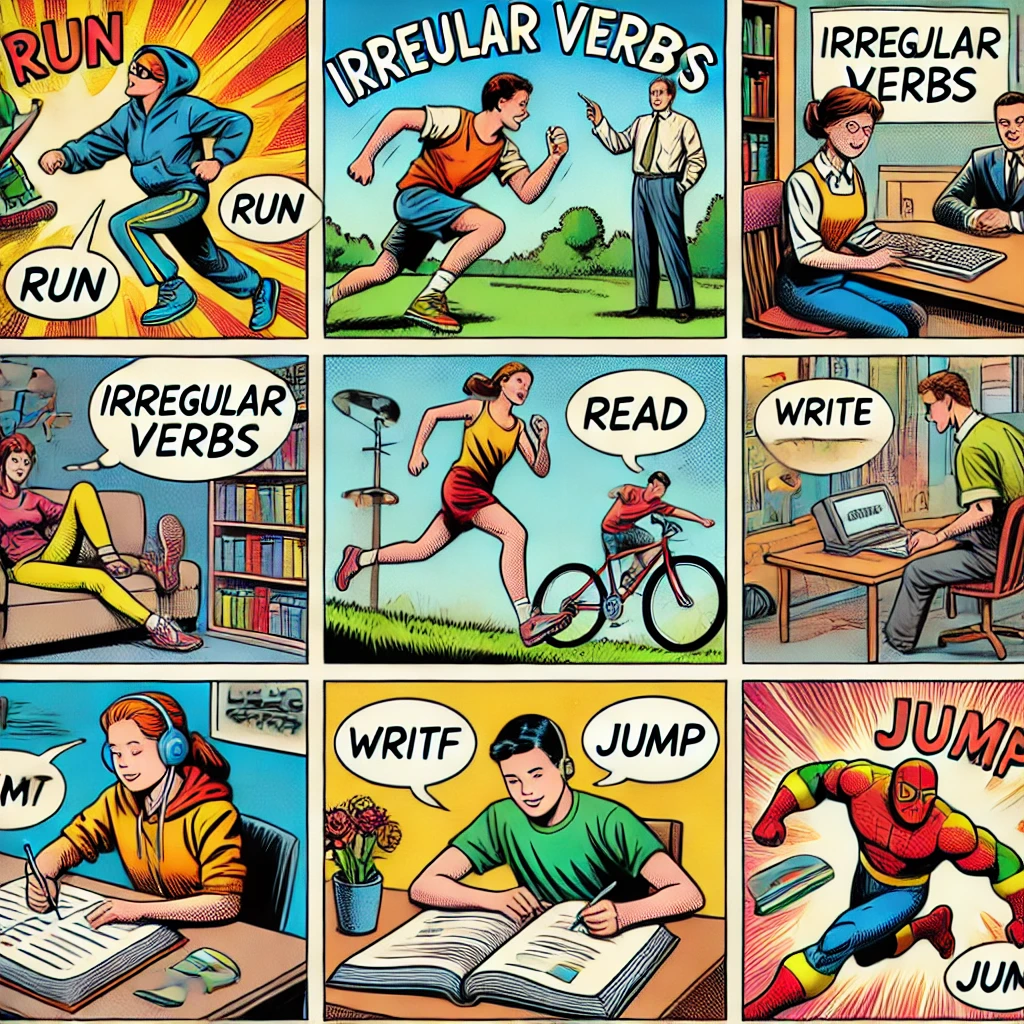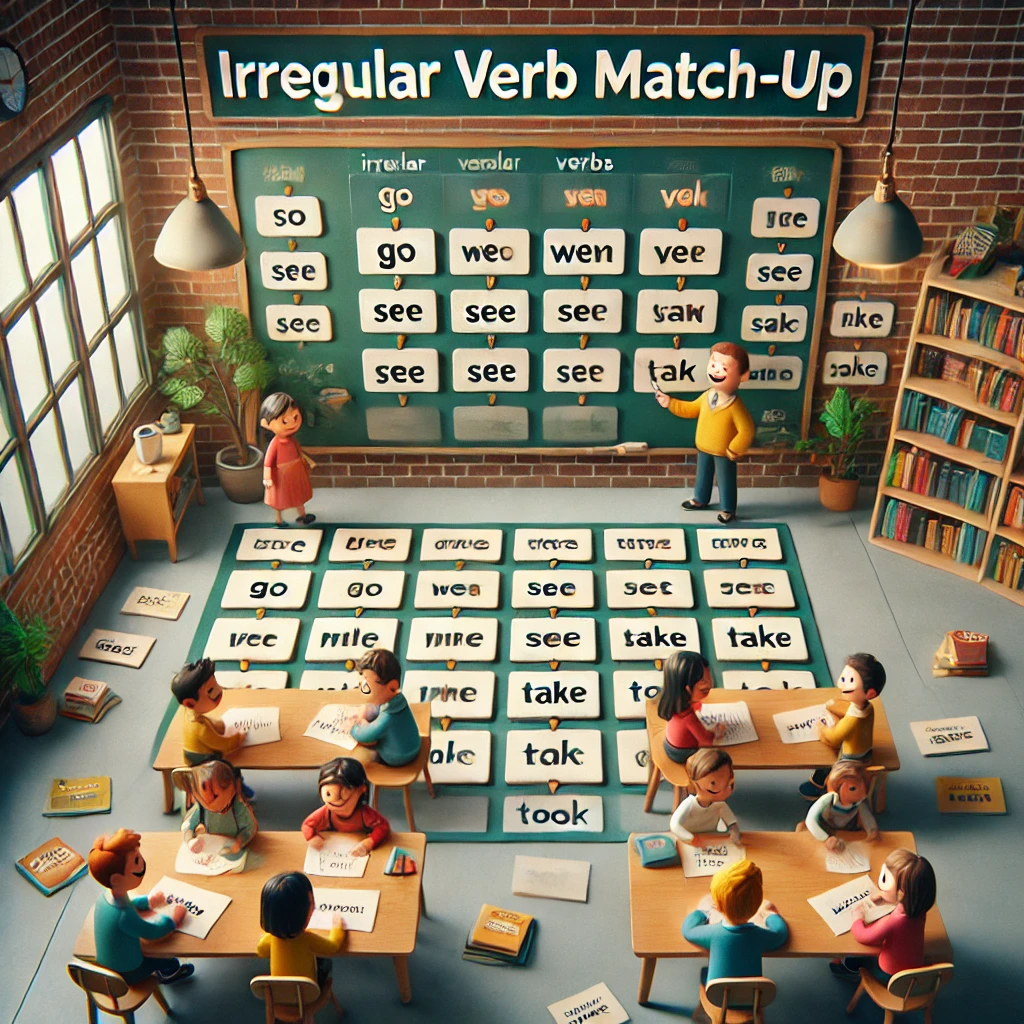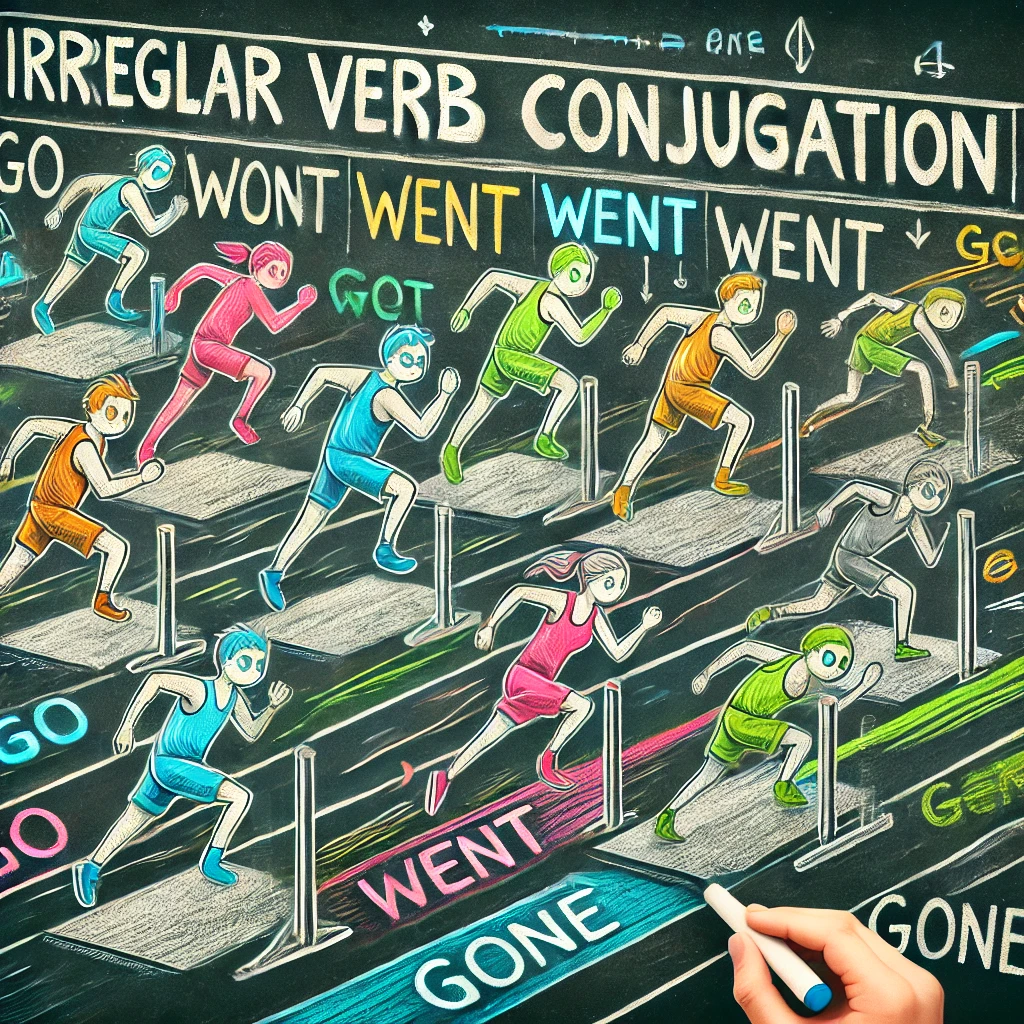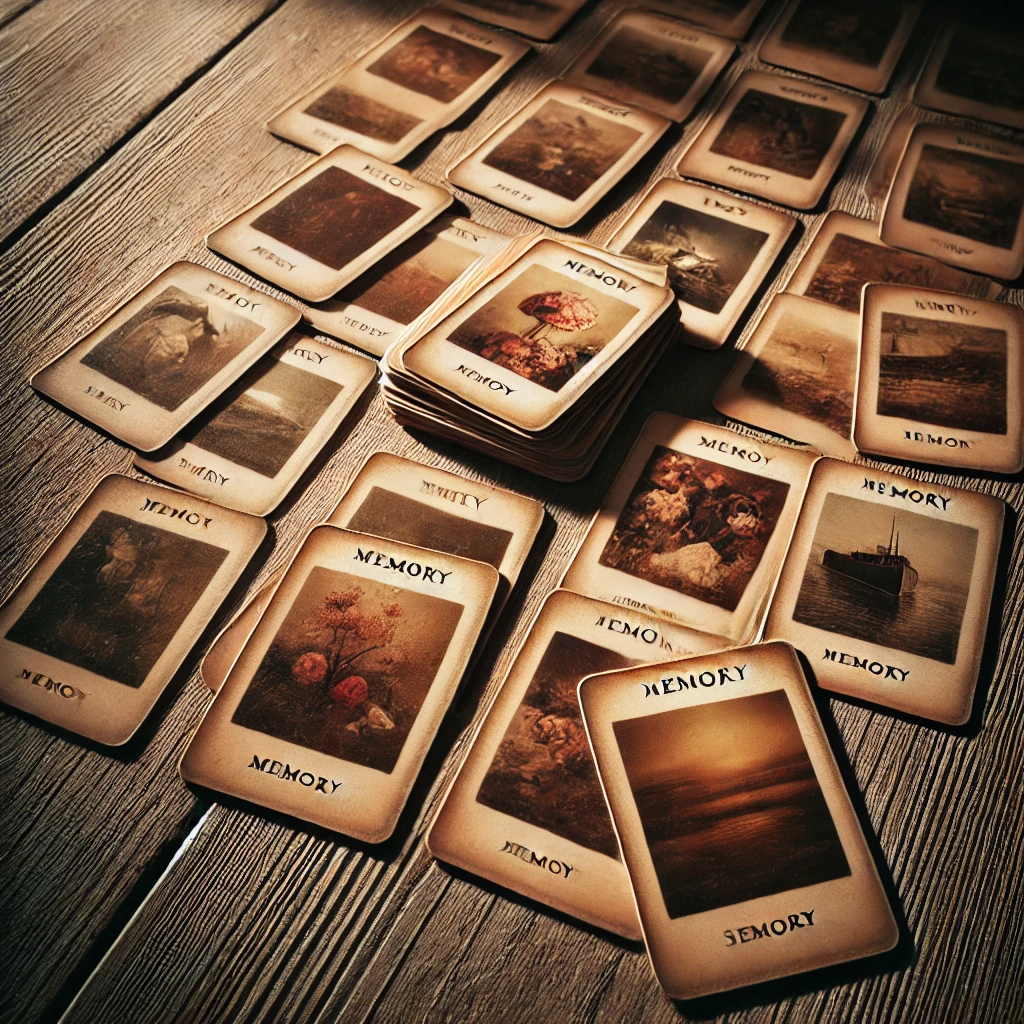
Irregular verbs do not follow the regular pattern of adding “-ed” to form the past simple and past participle. Instead, they change in unpredictable ways.
Learning Goal
Identify Irregular Verbs: you would be able to recognize and learn common irregular verbs in their past and past participle forms.
Understand the Importance of Irregular Verbs: Emphasize the significance of knowing irregular verbs for effective communication in English.
Use Irregular Verbs Correctly: use irregular verbs accurately in sentences and conditional structures.
Content
In this presentation, we will explore some common irregular verbs. Understanding these verbs is crucial for mastering English, as they frequently appear in both everyday conversations and academic writing.
Let’s get started with a list of some of the most commonly used irregular verbs. As we go through each one, pay attention to their unique forms and think about how you can use them in your own sentences. Ready? Let’s dive in!
Learning Activities
Irregular Verb Match-Up
Objective: Reinforce the recognition and usage of irregular verbs in their past and past participle forms.
Instructions:
- Preparation: We will use a set of cards with the base form of irregular verbs on one side and their past and past participle forms on the other.
- Group Work: You will be divided into small groups. Each group receives a set of cards.
- Match-Up: You should work together to match the base forms of the verbs with their correct past and past participle forms.
- Example: Match “go” with “went” and “gone”.
- Discussion: Groups will share their matches with the class, and any discrepancies are discussed and corrected.

Irregular Verb Story Challenge
Objective:
- Reinforce the use of irregular verbs in past and past participle forms through creative writing and storytelling.
Instructions:
- Preparation: We will use a list of irregular verbs with their base, past, and past participle forms.
- Individual Work:
- Step 1: You should write a short story or a series of sentences using at least ten different irregular verbs. You should use both the past simple and past participle forms correctly within your stories.
- Step 2: Be creative with your stories, integrating the verbs in meaningful contexts. For example, “Yesterday, I went to the park where I saw an old friend. We had a great time and taken some beautiful photos.”
- Peer Review:
- Step 1: After writing their stories, you should pair up to exchange your work.
- Step 2: You will read your partner’s story and highlight the irregular verbs used. You check for the correct usage of past simple and past participle forms.
- Class Sharing:
- Step 1: You should share your stories with the class.
- Step 2: Discuss the use of irregular verbs in each story, focusing on any common mistakes or particularly good examples of correct usage.
Example Story:
“When I was a child, I often went to my grandparents’ farm. Every summer, I would spend weeks there. One day, I rode a horse and fell off, but luckily, I had learned how to fall safely, so I wasn’t hurt. My grandmother always made delicious pies, and we ate them fresh from the oven. She had baked them every day. I have kept these memories close to my heart.”

Irregular Verb Conjugation Relay
Objective: Practice and reinforce your understanding of advanced irregular verb conjugations in a fun, competitive setting.
Instructions:
- Preparation: You will be divided into teams. Each team will stand in a line, with a whiteboard or a piece of paper at the front.
- Task: The first person in each team will receive an infinitive form of an advanced irregular verb (e.g., “swim,” “tear,” “forbid”). Your job is to run to the whiteboard, write the past simple and past participle forms of the verb, and then pass the marker to the next person in line. The next player will do the same with a new verb.
- Class Activity: Continue the relay until all team members have had a turn. After the relay, the whole class will review the answers together to ensure accuracy.
- Gamification Element: Each correct verb conjugation earns your team points. The team with the most correct answers at the end of the relay wins “Krugs,” which you can accumulate for rewards or class privileges.
Example Verbs:
- Infinitive: “Swim”
- Past Simple: “Swam”
- Past Participle: “Swum”

Irregular Verb Crossword Puzzle Challenge
Objective: Improve your recall of advanced irregular verbs by solving crossword puzzles that focus on their past simple and past participle forms.
Instructions:
- Preparation: You will receive a crossword puzzle where the clues are the infinitive forms of advanced irregular verbs.
- Task: Work individually or in pairs to complete the crossword by filling in the correct past simple or past participle forms of the verbs based on the clues provided.
- Class Activity: Once the crossword is completed, compare your answers with another pair or group to check for accuracy. Discuss any challenging verbs as a class.
- Gamification Element: Completing the crossword puzzle correctly and within a set time limit earns you “Krugs.” Additional “Krugs” can be awarded for being the first to finish or for the accuracy of your answers. These “Krugs” can be collected for future class rewards.
Example Clues:
- Clue: “Take” (Infinitive)
- Answer: “Taken” (Past Participle)

Irregular Verb Memory Card Game
Objective: Enhance your memory and recognition of advanced irregular verbs by matching verb forms in a card game.
Instructions:
- Preparation: You will receive a set of cards, each containing one form of an advanced irregular verb (infinitive, past simple, or past participle). The cards are shuffled and placed face down on a table.
- Task: In small groups, take turns flipping over two cards at a time to find matching pairs of irregular verb forms (e.g., infinitive with past simple, past simple with past participle). If you find a matching pair, you keep the cards and take another turn. If not, flip the cards back over, and the next player takes their turn.
- Class Activity: Continue playing until all pairs have been found. After the game, each group will present a few of their matched pairs to the class, explaining the verb forms.
- Gamification Element: Each correct pair you find earns you “Krugs.” The player or group with the most “Krugs” at the end of the game wins a reward, such as extra points in the next class or a special class privilege.
Example Pairs:
- Card 1: “Begin” (Infinitive)
- Card 2: “Began” (Past Simple)
- Card 3: “Begun” (Past Participle)

